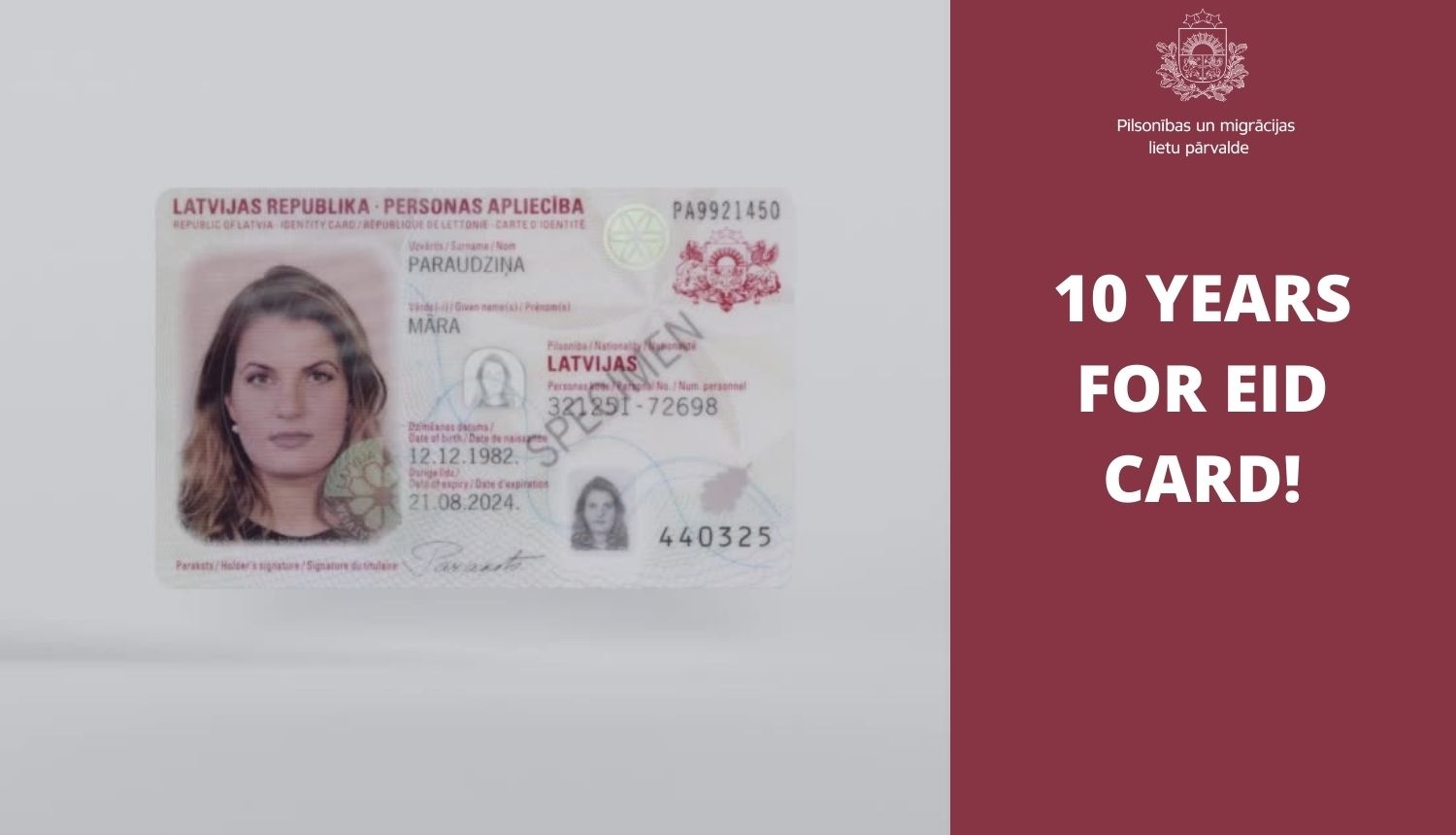The identity card of a Latvian citizen and a non-citizen (eID card) is an identity document that certifies a person's identity and legal status.
Read our article and find out what the eID card offers!
1.eID card - a convenient and multifunctional identity document!
With the eID card you can travel in the European Union and the countries of the European Economic Area, as well as prove your identity in person and in the electronic environment - remotely, conveniently and securely use public and private sector e-services, apply for eParaksts mobile, create an official e-mail address to contact more than 3,000 institutions, as well as registering a company, receiving notary services, suing and applying for social benefits.
2.Sign an unlimited number of documents!
With the help of eID card you can sign an unlimited number of documents free of charge. Electronically signed documents have the same legal force as handwritten ones. The eSignature is available to every eID card holder from the age of 14.
• What do I need to use a secure electronic signature?
• eID card, which is issued at OCMA territorial offices or consulates abroad;
• computer and internet connection
• A smart card reader that is compatible with your computer (if your computer does not have a smart card reader installed).
• Free software on your PC, available on the eSignature website.
3. Electronic identification - with the same reliability as presenting a document in person!
The electronic identification tool offered by the eID card is equivalent in terms of reliability to the presentation of an identity document in person.
4. From 2023 eID card - mandatory, priority identity document in Latvia!
From 2023, the eID card will be a mandatory identity document for every Latvian citizen and non-citizen who has reached the age of 15. The eID card will be mandatory for those living abroad from 2025, but for certain groups of persons in Latvia - from 2031. From 2023, the passport will become an optional identity document.
5. Modern e-identity verification
There are several tools you can use to verify your e-identity:
• eID card
• eSignature card and eSignature card +
• eSignature mobile
6. What are the biggest differences between an eID card and a passport?
An identity card or eID card, unlike a passport, can also be used to prove identity in an electronic environment (authentication) and to use an electronic signature without leaving home.
7.EID card validity period
For children under 5 years of age, the eID card is issued for two years or for the duration of the trip. For children from 5 years of age to 19 years of age - eID card is valid for 5 years, but for persons from 20 years of age - eID card is valid for the same period as a passport - 10 years.
8. State fee for eID card
The state fee for drawing up an eID card is - 15 EUR, drawing up it within 10 working days, and 30 EUR, drawing up a document within 2 working days.
Pensioners, persons under the age of 20, as well as persons with disabilities of groups I and II are entitled to state fee exemptions, i.e. eID card registration costs…
9.eID card and travel
An eID card is a valid travel document to all countries where a visa is not required or where a passport is not required to enter or stay in that country, such as when an eID card is not recognized as an identity document in a country.
The conditions for entering the country can be found on the website of the country's border guard or embassy.
10.eID card is a state property!
The eID card, like the passport, is state-owned. After the expiration of the document, it must be handed over to the Office. The identity card must not be damaged, discarded or destroyed yourself. In case you lose your document - a warning may be issued or an administrative fine may be imposed at the time of drawing up a new document.



